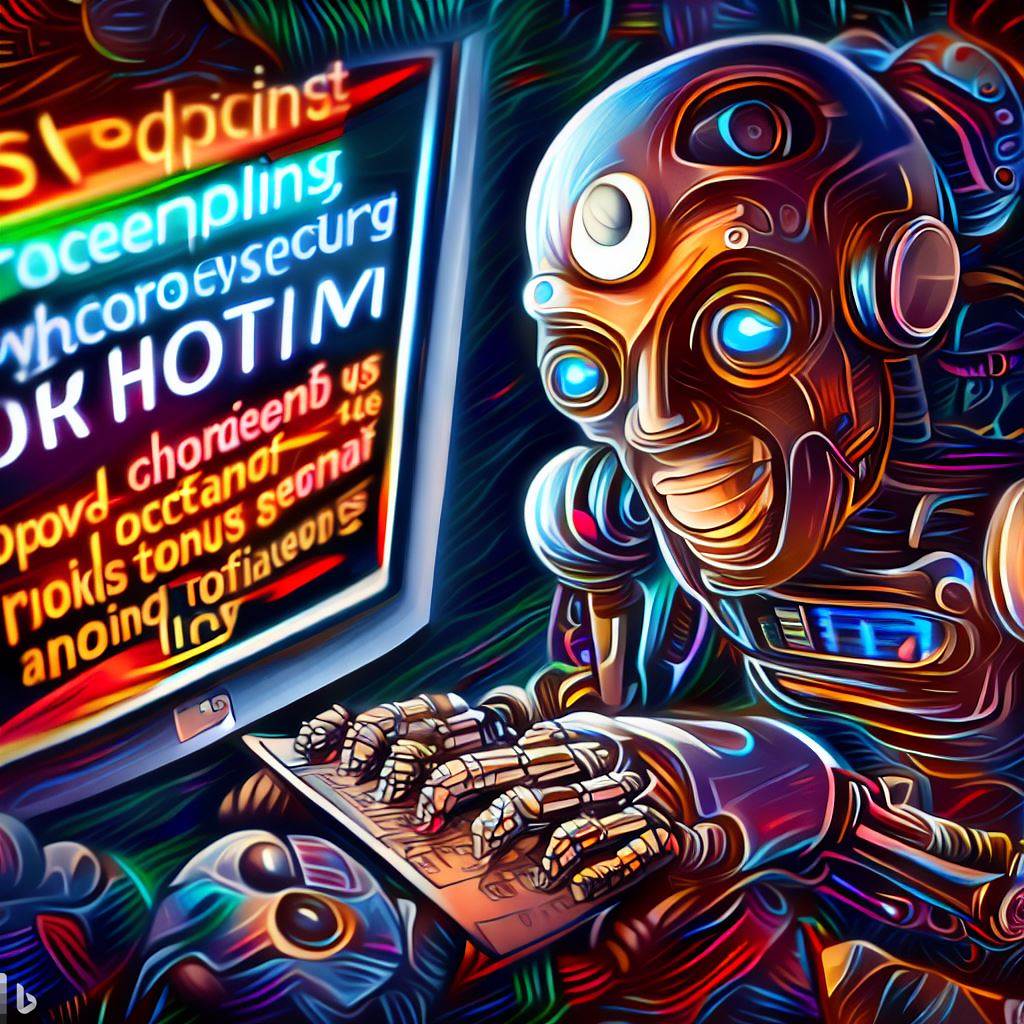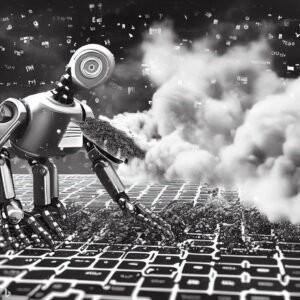The Dark Side of Artificial Intelligence: The Pollution of Automated Content

Artificial Intelligence (AI) has undeniably revolutionized various aspects of our lives, from enhancing efficiency to driving innovation. However, as we delve deeper into the era of automation, a cautionary tale emerges. AI, when misused or left unchecked, has the potential to pollute the internet with automated content, saturating it with fabricated text, videos, and images. This article aims to shed light on the dark side of AI, highlighting the risks and consequences of uncontrolled automation.
The Rise of Automated Content
In recent years, AI has made significant strides in generating content that closely mimics human-created material. With the advent of advanced language models like GPT-3, deepfake technology, and image synthesis algorithms, AI systems can now generate text, videos, and images that are almost indistinguishable from the real thing. While this technological advancement holds promise in various fields, it also opens the door to a wave of automated content that can be easily weaponized by those with malicious intent.
Fabricated News and Misinformation
One of the most alarming consequences of the proliferation of AI-generated content is the potential for the spread of fabricated news and misinformation. With the ability to create authentic-looking news articles, social media posts, and even video clips, malicious actors can exploit this technology to manipulate public opinion, sow discord, and undermine trust in established institutions. The sheer volume and speed at which AI can generate content make it challenging for users to discern fact from fiction, leading to a polluted information ecosystem.
 The Dangers of Deepfakes: Misuse of Famous People’s Likeness and Voice
The Dangers of Deepfakes: Misuse of Famous People’s Likeness and Voice
One of the most alarming aspects of AI-generated content is the rise of deepfakes, which have the potential to wreak havoc on individuals, particularly celebrities and public figures. Deepfakes involve the manipulation of someone’s likeness, voice, or both, to create convincing fake videos or audio recordings. This technology can be exploited to tarnish the reputation of famous personalities, propagate false information, and manipulate public perception.
The misuse of deepfakes poses a significant threat to privacy, consent, and the credibility of individuals. By superimposing a famous person’s face onto explicit or compromising content, malicious actors can cause severe harm to their victims’ personal and professional lives. The viral nature of social media amplifies the dissemination of such content, making it challenging to contain or refute the false narratives generated by these manipulated videos.
Moreover, deepfakes undermine the public’s trust in media and pose significant challenges for law enforcement and legal systems. Authenticating and verifying the veracity of video evidence becomes increasingly difficult in an era where AI can fabricate compelling counterfeit material.
Protecting against the misuse of deepfakes requires a multi-faceted approach. Technological advancements should be accompanied by robust detection tools that can identify manipulated content accurately. Legislation and legal frameworks must adapt to address the specific challenges posed by deepfakes, outlining consequences for their malicious use. Additionally, public awareness campaigns and media literacy initiatives are crucial in equipping individuals with the knowledge to recognize and critically evaluate AI-generated content.
Conclusion
While the potential benefits of AI are vast and undeniable, we must confront the darker side of this technology. The pollution of automated content threatens to undermine the integrity of the internet, erode trust, and compromise the very fabric of our digital society. It is essential that we develop robust safeguards, promote media literacy, and foster responsible AI usage to prevent the negative consequences of uncontrolled automation. By doing so, we can navigate the evolving landscape of AI and deepfakes and preserve the internet as a space for genuine human connection, creativity, and reliable information.
Regenerate response
